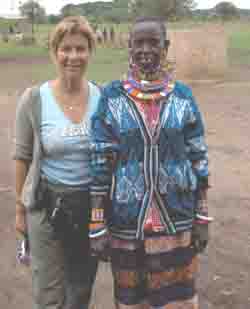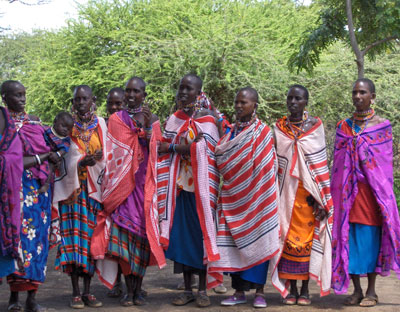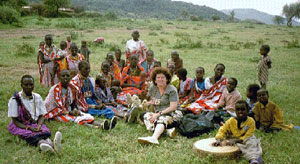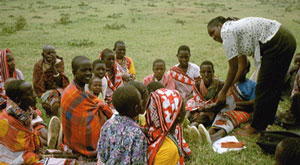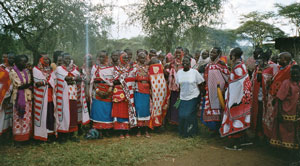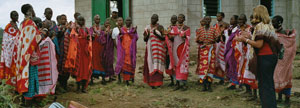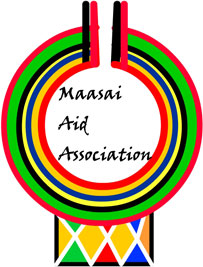 |
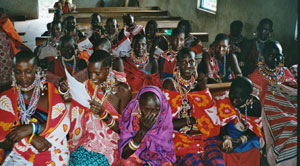 |
||||||||
|
Volunteer mission in Kenya : avril 2006 - The member of MAA Doctor Mrs. Aliki Agoritsas carried out a volunteer mission in Kenya in order to give information on health issues and sensitize rural women about FGM dangers. She was hosted at the Catholic Mission of Rombo and supported by our friends there, Joseph and Elaine. She managed to visit 4 villages : Olgira, Ngasakinoi, Lemongo, Matapes and about 500 Maasai women attended these successful workshops. We remind you that traditional FGM (female genital mutilations) are practiced essentially because of ignorance of bad consequences on women health. Therefore, disseminating targeted information is the best means to eradicate harmful practices. Our experience on the ground is encouraging and promising. Rural women are willing to make their lives better!
Decembre is a month of joy and hapiness time for us,a month of silent suffering for those young Maasai girls.December of every year is the month of ritual mutilation (FGM) for thousands of young African girls. The consequence of this tradition for their health is dramatic. This tradition is not a fatality neither a folk element, but a severe violation of Children Rights. Our experience in the field has taught us that it’s possible to eradicate this harmful practice if the health issue is explained in a comprehensive way (and of course in their dialect) because it lasts mainly due to ignorance. The change of behaviour after the workshops and seminars among the Maasai community in Kenya clearly show that we should continue the campaign strengthening in two areas :
Bush seminars (workshops)One of the priorities of our action is to :
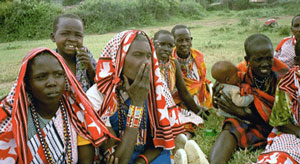

|
||||||||
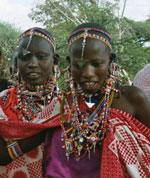
Maasai girls are singing for celebrating our arrival in their village |
|||||||||
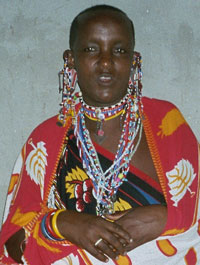
Young FGM practicer convinced to stop cutting |
|||||||||
Narok, March 2005 , information seminar about Children Rights, FGM and reproductive health to school pupils (10-14 years old). In spring 2005, we had organized several seminars at Narok district and Oloitokitok district for young pupils aged 10 to 14 years (the age to undergo FGM). Around 450 young girls attended these workshops.
Conversion of TBAs (traditional birth attendants or excisors) "- I am a woman who cuts girls as a job” told us a TBA young woman at the end of one information seminar. “- I didn’t know that is was so bad for our health. Now that I know what the effects of the cutting are, I am ready to change the act and do something else instead…” Taking into account this positive demonstration in attitude change, we started since last year to propose an alternative rite of passage to TBAs. In Maasai culture FGM ceremony is individual and is considered as a family affair, organized by parents. This is specific to Maasai ethnic group (different traditions in other Kenyan communities). The girl circumcision is an unique opportunity for the whole village to celebrate for 2-3 days, drinking and eating, singing and dancing. Because the festivity is a joyful event important for the social cohesion, and because we recognise the rite of passage as a meaningful event in a girl’s life, we propose to TBAs to continue offering their services but, instead of cutting, bleeding and mutilating the body of the young girl, preparing her with words for her future “woman” life. We supply them with small illustrated booklets (TBAs are at 90% illiterate women) to use them as a tool in the new *educative” ceremony of passage. Replacing the razor blade or the knife by a useful “woman’s life lesson”, in fact by knowledge, this is the challenge that African women have to face, if they want to improve their lives.
|
|||||||||
| Copyright © - e-solidarity.org, 2004-2005
info@e-solidarity.org |
|||||||||
